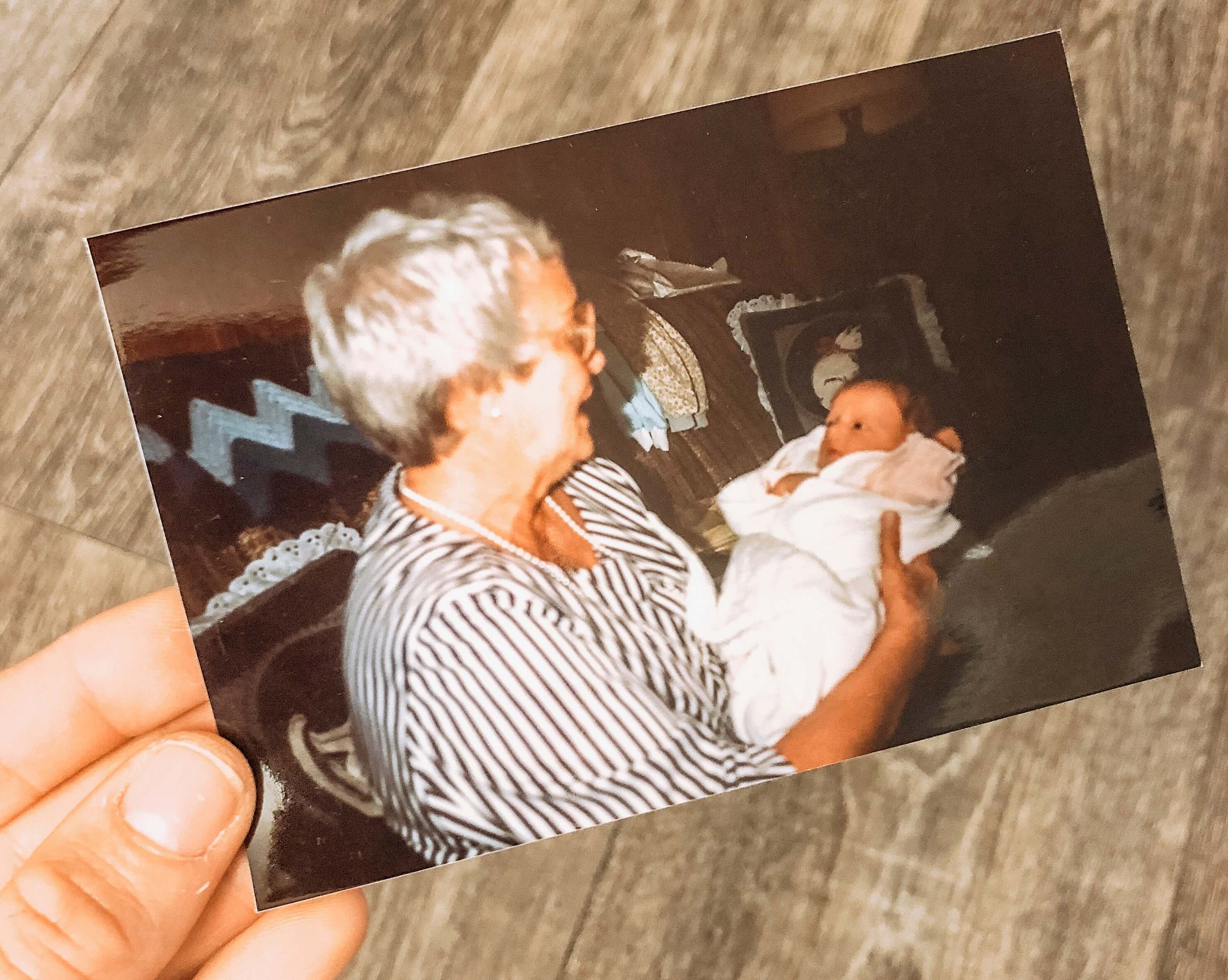Lung Cancer Awareness

Thank you AstraZeneca for sponsoring this post. November is Lung Cancer Awareness Month. Now more than ever, there is reason for hope. Please visit LIVE W.E.L.L. and LVNG With Lung Cancer for more information.
In the United States, lung cancer is the leading cause of cancer death among both men and women, accounting for approximately 154,000 deaths each year and about one-quarter of all cancer deaths – more than breast, prostate and colorectal cancers combined.
Having lost my grandmother to lung cancer, lung cancer awareness is a topic that hits very close to home for me, and this post is written in her honor. I love the cherished memories I have with my grandmother, and I hope that this post will provide valuable resources and information, as well as to give hope to those living with lung cancer.

What you need to know
Lung cancer stage is determined by tumor size and whether it has spread to nearby areas, lymph nodes, or other organs. Some of these stages have unique names, which can sometimes make understanding the types of lung cancer confusing.
There are four main “stages” of NSCLC, defined primarily by the size of the tumor and how far the cancer has spread within or outside of the lungs.
There are a lot of misperceptions about lung cancer, particularly in grouping Stage 3 cancer with Stage 4 cancer.
Stage 4 NSCLC is called “metastatic” and occurs when the disease has spread to distant parts of the chest or to other organs, such as the brain, bones or liver.
Stage 3 is different—it is an earlier stage of disease with better long-term survival rates. Typically, the earlier we treat disease, the better outcomes we have.
With the advancement of treatment options, it is critical for patients not to give up – to be aware of their options and talk to their doctor about what treatments may be appropriate for them.
Personalized medicine
Lung cancer treatment is a big decision, and patients deserve the best option for them from the get-go. Just as a team coach wants to draft the best player first rather than wait until a later draft round, there is no type of cancer where you shouldn’t choose your best option first for your specific type of disease. In order to get the best first, you have to test first.
Scientific advancement
In recent years, researchers have come to understand important details of how lung cancer grows and spreads. This has led to important new treatment options that treat cancer differently from conventional therapies, like chemotherapy and radiation. Two important types of therapy are targeted medicines and immunotherapies. In later stages of lung cancer, particularly stages 3 and 4 NSCLC, these types of medicines are changing the way cancer is treated.
Targeted medicines: Lung cancers have certain “biomarkers,” which are unique traits of each individual lung cancer, diagnosed through testing, that can help patients and their doctors understand its specific characteristics and can play a role in determining what types of medicines the cancer is most likely to respond to. This is often considered a form of “personalized medicine,” which includes treatments specially designed for certain tumor characteristics. Personalized medicines include targeted treatments for lung cancer with certain biomarkers, such as the epidermal growth factor (EGFR) mutation. EGFR is a protein found on the surface of some cells to which epidermal growth factor binds, causing the cells to divide. It is a common mutation of NSCLC, for which targeted medicines are available.
Immunotherapy: In the fight against disease, the immune system is the body’s greatest ally. However, cancer is smart and can take on a disguise. Proteins such as “PD-L1” can cloak cancer cells, preventing the immune system from recognizing them and making it nearly impossible for the body to attack the harmful cells. Unlike traditional types of therapy, such as chemotherapy, which seek to attack the cancer directly, immunotherapies – also called Immuno-Oncology (IO) medicines – empower the body’s own immune system to find and attack cancer. By blocking or inhibiting proteins such as PD-L1, we are able to make the cancer cells more recognizable to the immune system, thereby activating it to find and attack cancer cells. For some lung cancer patients, immunotherapy may be an option following conventional therapies, to keep the cancer at bay for longer and, in some cases, showing positive signs for improved overall survival.

Lung Cancer has impacted my family in a very personal way. I’m raising Awareness about lung cancer in honor of my grandma, and I’d love for you to join me. During Lung Cancer Awareness Month this November, please join me in spreading the word. If you know anyone who has been diagnosed with lung cancer, it is critical that they become their own advocate, understand their full diagnosis, and talk to their medical team about what treatment options are right for them.

Now more than ever, there is reason for hope. Please visit LIVE W.E.L.L. and LIVNG With Lung Cancer for more information.
I was selected for this opportunity as a member of CLEVER and the content and opinions expressed here are all my own.